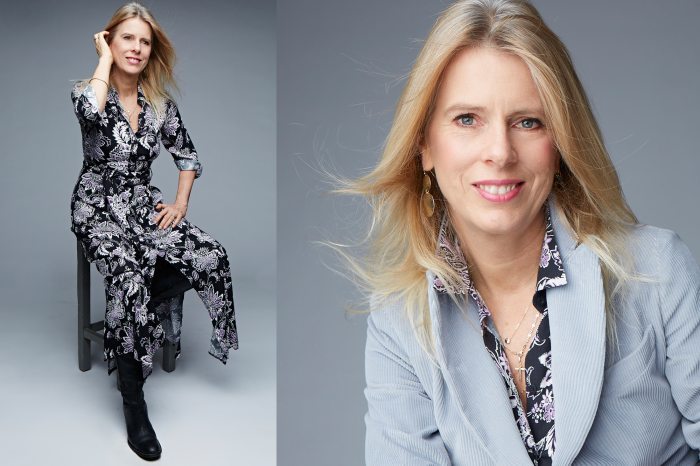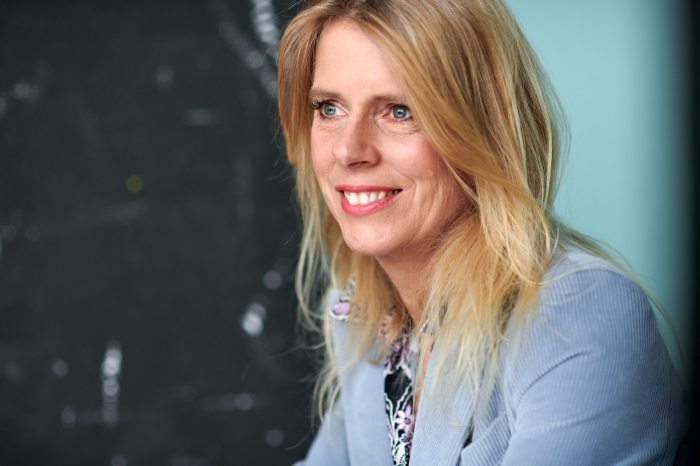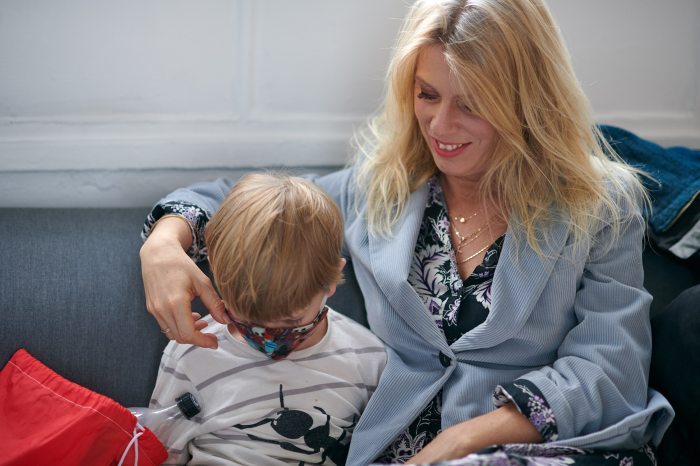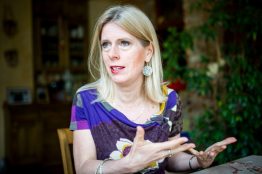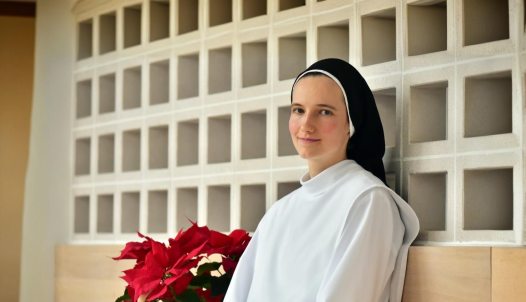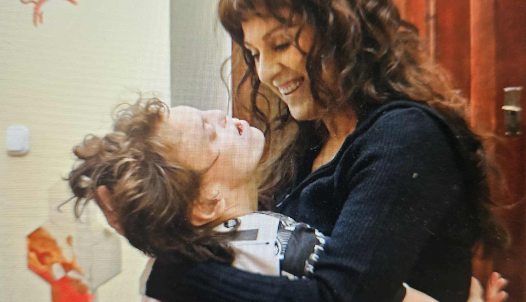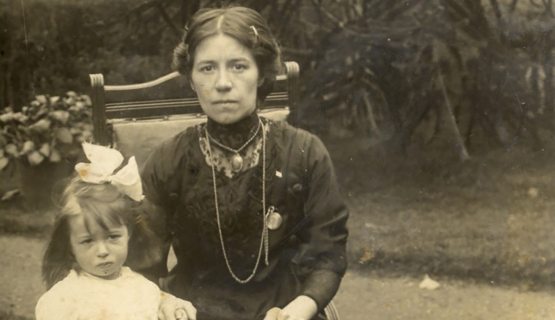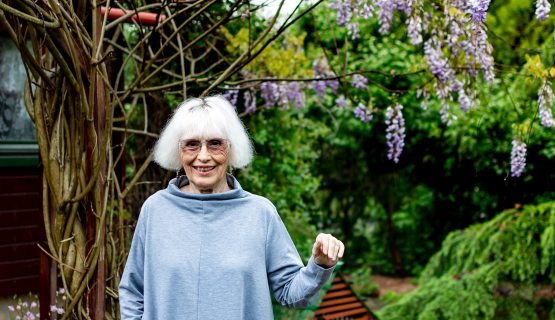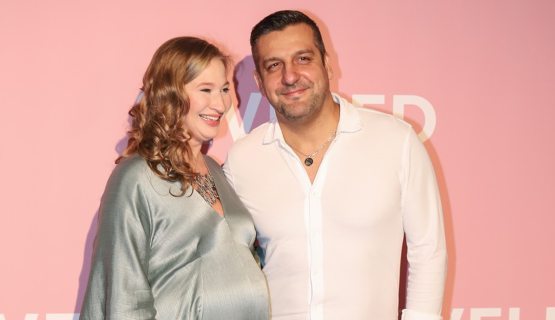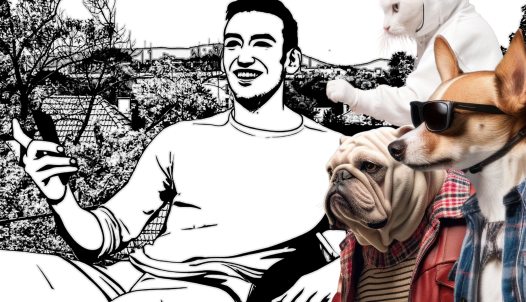Diána Ürge-Vorsatz: “Do I have the right to consume more but they don’t have the right to live?”
The recent past has been an unusual time for us all. It came with losses, lessons, and – although these are perhaps less obvious – benefits. We have personally experienced that there are global phenomena that knock on our door as well, for example, in the form of a pandemic. Perhaps never before have we come this close to taking the danger caused by humanity’s destruction of the environment so seriously, with which not only the spread but the development of the pandemic is connected. However, perhaps we have come even closer to putting in place new skills and expertise with which we could avoid, or at least reduce, climate catastrophe. We spoke with climate researcher Diána Ürge-Vorsatz.
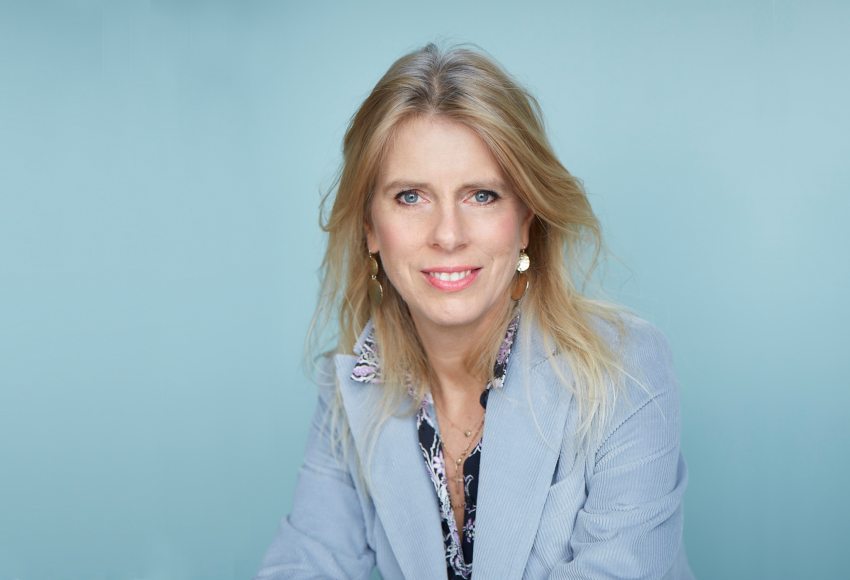
From an environmental point of view, what is the balance of the epidemic so far?
The most important thing is that this pandemic may be the final warning to change our ways so that civilization can survive. We are lucky that the mortality rate of this pandemic is relatively low, let’s say compared with the plague or ebola.
It is already evident that the increased frequency of new epidemics is closely associated with our destruction of nature.
By sharing 84% of the world’s ice-free land area with only a handful of other species, which we produce as cultivated plants or domesticated animals (mainly corn for pigs and grazing land for cows), indeed, we even shaped forestry to have only one species of tree, what’s more, those of the same age and form, humanity has ‘dumbed down’ nature. By doing this, humanity has also eliminated ecosystem services that could save us from similar pandemics. Why are there stink bug invasions, why has the incidence of Lyme disease spread by ticks tripled in Hungary over just two decades, and why is Nile fever spreading here, too? There are many types of micro-organisms in a healthy ecological system, for example, pathogens also keep the species in balance so that certain species and their diseases are unable to spread excessively. But we simply exterminate everything we find disgusting, that bites, causes damage, even leaf mould. Thus, huge ecological voids have been created, which are filled with the most easily adapted invasive species, floodplain plants with their own specific pathogens that are able to multiply virtually without check. Currently, humans account for around one-third of the total mass of land-based vertebrates, two-thirds are domesticated animals, and all the other, natural, diverse vertebrate species make up a mere one percent! If a pathogen is set loose among the barely dozen species accounting for the two-thirds, added to which we keep these packed in close proximity where they can easily infect each other, then the epidemic spreads very quickly and the pathogen has a million opportunities to mutate until it takes a form that is dangerous also for humans. They in effect form bridges between us and wildlife because these animals are in regular contact with humans. Just consider swine fever or bird flu! But this is not the only reason that we should protect species. If, for example, there are no pollinators that pollinate plants, then there is no food. And we often forget that not only is the cute bee a pollinator, but also the fly and the male mosquito, for example.
Besides the many negatives, the pandemic has had a few short-term benefits as well, for example, reduced airplane, cruise ship and car traffic.
“Naturally, masks and disinfectants represent a certain level of environmental pollution, but this is only the tip of the iceberg. As are the frequently mentioned drinking straws. I’ll tell you what the iceberg is, though: we have to wean ourselves off oil, coal and gas. But as long as these companies are doing very well, while airline companies are in profit, nobody would dare say that the company should be closed down and the employees should be sent somewhere else. Now, it is precisely those branches of industry that should be closed down that are actually in the biggest trouble. We shouldn’t put those branches of industry which should be eliminated anyway, or at least cut back, on the ventilator, for example, we should not maintain a labour force at empty airports unnecessarily, but we should direct them to the new, green sectors of the industry!
Currently up to 24% of GDP is earmarked for economic recovery, of which 2-3% per annum would be sufficient to resolve the climate crisis.
Digitalization, new energy production, renovations and services, domestic tourism should be developed. Rural tourism started up between the two waves, numerous companies could have got involved in this area. Local services, shorter supply chains, local producer alternatives. We have been able to see for ourselves that we can function in the digital space and an increasing number of enterprises can operate online.
We frequently lose our sense of proportion because it is easier to give up the drinking straw than to see that in questions of greater volume, for example, in the debate on atomic energy versus fossil fuels, we don’t really have an impact on decisions but we don’t even have reliable information on which is the lesser evil.
The environment is a very complex thing. Atomic energy versus coal power is not purely a political or economic debate but also a scientific one, and it is not that simple because you have to compare apples with pears. The carbon emitted here going with a risk in the future or that ethical dilemma about enjoying the benefits now and we then force thousands of generations to take care of atomic waste. Which is more important can only be decided on the basis of a value judgement and not on the basis of numbers. But looking at the big picture, frequently it is easy to say. Those solutions are right which are to be found in harmony with nature. So far, super technology always only converted one problem into another. The goal is always prevention and not that we collect pollution in a diaper afterwards.
In the final analysis, it is always better when we use less. It is better when we use the car less frequently. Why do metal boxes own the city and not pedestrians and cyclists?
My child is begging me to use the bicycle, but this requires going through such dangerous crossings that I simply cannot allow it. Where there are safe infrastructures, for example, in Amsterdam or Copenhagen, many people travel by bike. During the pandemic, cycle traffic in our towns and cities doubled or tripled.
What sort of communication bridges do the researchers and scientists of your profession have at their disposal to reach decision-makers?
You have asked an extremely difficult question. One of the main consulting positions in the European Commission will now be vacated, which is why I was also interviewed and they asked me what I thought was the biggest challenge in the European Union now. I think that this is it.
These days, belief in science has been so shaken that it is barely taken into consideration when reaching important political decisions.
The majority of people source their information not through scientific channels but from fake news, partial truths and conspiracy theories spread by social media. It is very difficult to reach the right decisions in such an environment, even if a politician has the best of intentions. We reacted to the pandemic very quickly in the first wave, we brought decisions on lockdowns rapidly, and we came out of it very well. There were problems with the economy, but we overcame them in a few months and we didn’t lose many jobs in the long term. However, by the time the second wave arrived politicians didn’t dare to listen to scientists, not even in other countries, in France, Belgium and England, because voices asking ‘why should I wear a mask?’, ‘the economy is more important’ had intensified in volume. Acquaintances of mine, university graduates, posted fake news and wrote things such as that the pandemic was forced on us on purpose and that Putin intended to exterminate us all. We know that the economy suffers far more if we postpone measures, and I would note here that if we do not go into lockdown, but the people remain frightened and they don’t dare to go to the beautician or to the theatre, then the economy will not function well in this case either.
In recent times, albeit to varying degrees, everyone has had fears about the future. About the health and existential situation, about isolation. As a matter of fact, your profession is all about learning what possible negative scenarios there are for the future. Doesn’t this result in a state of constant fear and anxiety?
I have managed so far. I saw how bad the situation was and I see how my children become climate depressives when they understand what I am occupied with, but I also see that there is a way out. I saw that we can do it, there are good examples and small success stories. However, the second wave of this pandemic somewhat shook my beliefs. Because if we couldn’t understand something simple like, if we act too late we are cutting the branch from beneath us, what can we expect in longer-term crises? The majority of super American and European democracies failed, including us. Vietnam, China, Singapore, Japan, Taiwan, Thailand, Australia and New Zealand did not fail. Even though some Asian countries have very high population densities. Those societies could protect themselves from deaths running into the hundreds of thousands and the bankruptcy of the economy.
Perhaps not only because there are dictatorships in some, but also because in Asian countries it is easier for a community consciousness to override self-realization and the fleeting interests of the individual.
In that case, however, something is not right in our superdemocracies and super economies. This raises serious questions.
If we are not able to place social aspects in the foreground compared with short-sighted economic interests, then we have no chance of solving the climate and biodiversity crisis, which requires thinking on a much larger scale.
And we won’t be able to survive climate catastrophe by civilization; we have to make changes as one.
Conflicts between generations also seriously burden this endeavour. Today’s generation of 50-year-olds are frequently against minor changes, for example, ending plastic packaging. Perhaps there is a certain cognitive dissonance in this whole thing.
There was never such a huge generation gap as there is today. Our generation refuses to acknowledge that we are stealing the space for life from those generations to come. This is the situation even at the level of researchers and science. Nobody likes change, but a young person who does not have habits fixed for decades has no problems choosing a new career, work, lifestyle. However, those who have already established a lifestyle find it difficult to switch to another, they easily accept the counterarguments which prove that ‘the situation is not that bad.
There may be a sense of guilt behind this…
Yes, but we have the excuse that we didn’t know that we would cause such great damage.
We didn’t know that sitting in the car regularly was such a serious problem. And if we don’t have alternatives, then the knowledge is in vain. But we can achieve a situation where the conditions are created. For example, if there is the option under law to work from home, and there is no need for the daily commute, changes can be made, too.
It is good news that we have started to garden and we are getting out into nature more often. The pandemic brought everybody something that is good for their own lives and the environment as well. Let’s grab this now and keep it! Obviously, there is no way we can cancel personal relations and meetings, there is a great need for these. But, for example, we could easily introduce a state where students of upper primary schools and secondary schools only go into school three days a week instead of five, numerous conferences, parental meetings, appointments, consultations could be held online, saving a lot of time and harmful emissions.
Is there anything you regard as a personal success?
It is always a great joy for me when somebody comes to me at, for example, the strand on the river Tisza and says ‘Is it really you? I always unplug the TV since you said it was important.’ At such moments I feel that it was worth putting in so many nights and so much work in a society that took me away from my family.
Does your family also consider this to be an important matter?
I’ll tell you, my children take this so seriously that I receive a telling off from them if I falter. One of my daughters, who loved sausages and duck, is now so seriously vegan that she eats her little bit of tofu while the goose we are eating is on the table all fragrant and nice. She does not force veganism on us but still, I have qualms of conscience at these times.
Is there a need for such heroic examples?
Icons are important. Not everyone will follow, but they are inspiring. If the world did nothing else but followed a diet with, say, three meals a week featuring meat (such a varied diet is fully in line with recommendations on healthy living), then we could halve the emissions of the entire food production system - not just with animal husbandry, but with restaurants, deliveries, cooking, all together.
We try not to buy beef or pork and cold cuts. And we feel better as well, my husband also got to like this, indeed, he misses hummus and linseed if there isn’t any at home.
This is not asceticism, this is an opportunity in which we can feel very good. It is a little tricky to start off but then you get to like it and it is no good otherwise.
Generally, you plan in the long term. I suppose for you, one year is small scale. What goals do you have for 2021?
I have a ton of research goals, articles I want to write, and of course, it would be a dream come true if I got the EU’s post as senior scientific advisor. Forty-seven people were called for an interview and they shortlisted seven, including me. Five of the seven are women, including a Hungarian, so there is only a small probability that they will select me, but it is still a fantastic thing to be among the seven candidate scientists.
Are women more sensitive to this subject?
Certainly, they are more sensitive, but in science, women don’t make it to the executive grade because they reach those compromises that a family requires earlier. Because of this, I probably won’t get in either, because there’s no huge institution behind me, and although I’ve been tempted several times, I don’t even undertake such things today, I prefer to spend my afternoons with my kids. I am grateful to the media for all the possibilities I received because even without an influential position my words make it to many places.
How old are your children now?
The youngest is six, the twins are nine, the teenager is 13 and there are older ones.
You must have seen the climate protection roadside poster that announces: ‘The best thing you can give your child is not to have a sibling.’ Did your colleagues ever reproach you for having seven children?
Oh, yes they did! But what a selfish and silly approach this is!
Those who emphasize this consider their own consumption sacred, and not life. I have the right to consume ever more but they don’t have the right to live.
We don’t even notice the areas with a high density of population on the emissions curve, more than a half of the population of planet Earth accounts for less than 10% of toxic emissions. For example, there are 10 of us living in one house, the per capita heating is a fraction of that in households with one or two children. On the other hand, the wealthiest one per cent is responsible for more than half of total emissions! Population growth will stop on its own if everyone has a chance to carry out economic activity providing a livelihood, and childbirth will not be the only pension fund investment, the child will not be the cheapest labour force. But if even David Attenborough, for whom I have great respect and his new film is fantastic, keeps going on about overpopulation? Population times consumption gives indicators of the negative impact, and consumption rises much more than the population.
Perhaps it is more difficult to learn thinking in communal terms in a one-child family.
Precisely. That community in which things have to be shared educates the person to a cooperative future much better. I am an only child and I am far less able to make sacrifices and compromises than my husband who comes from a family of four children. For him, it is natural when somebody takes something from his plate, I don’t like it at all if somebody reaches for my food.
Then where did the courage come from to have seven children?
God had the courage, we just accepted it... I am very grateful to God that I received so many gifts, family is a source of great joy. Naturally, there were, and there still are, difficult situations when teenagers behave not like when they were lovely small children, and that can be painful, but one never regrets it.
